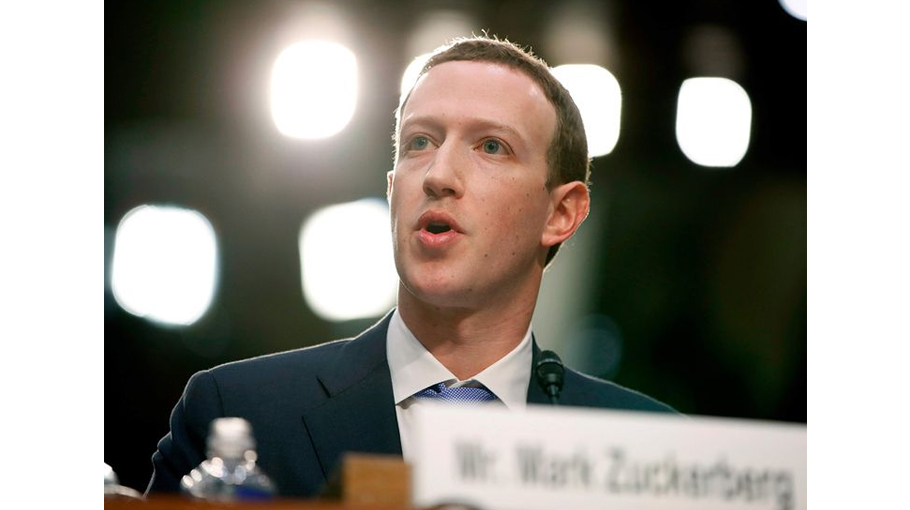Can Big Tech tackle online child exploitation crisis?
Zuckerberg apologises as US Senate slams Meta, but social media platforms need to do more

They came, they testified, and they left. The senate hearing was not as fast as it was furious, there was Meta’s Mark Zuckerberg, TikTok’s Shou Zi Chew, Snapchat’s Evan Spiegel, Discord’s Jason Citron, and X’s Linda Yaccarino, all lined up to answer questions on ‘Big Tech and the Online Child Sexual Exploitation Crisis.’
They also played the usual card, ‘they were a parent too,’ ‘nightmare for every parent,’ and then of course boss man Zuckerberg, ‘I will look into it personally.’ Four hours later a lawmaker had had enough, “So here you are — if you’re waiting on these guys to solve the problem, we’re gonna die waiting.”
Can’t really find any fault with that thinking. The more things change, the more they remain the same. With every successive complaint, tech companies’ promise of change becomes more distant than the promised land.
In a showstopper moment, Zuckerberg, whose company Meta owns social media platforms Facebook, Instagram, and WhatsApp, apologised. “I’m sorry for everything you’ve been through, no one should have to go through the things that your families have suffered. And this is why we invest so much and are going to continue doing industry-leading efforts to make sure that no one has to go through the things your families have had to suffer.” The words, the emotion, the sad fishing, all worthy of ‘likes.’
His eight time on the stand and chances are Zuckerberg knows the drill. “Mr Zuckerberg, what the hell were you thinking?” asked Republican Senator Ted Cruz during the proceedings, he was referring to Instagram- of course- where users are warned that they may be about to see content with child sexual abuse but are still asked if they would like to ‘see the results anyway.’
Sextortion, paedophilia, grooming, sex abuse, drugs, mental health — you don’t need 20 reasons why to tick off the dangers of social media, enough reports flag it. In a civil lawsuit in December, Facebook and Instagram were accused of failing to protect underage users who were exposed to content that had not just child sexual exploitation but also allowed adults to solicit pornographic images from them.
Furthermore, it mentioned how Meta ‘harms children and teenagers through the addictive design of its platform, degrading users’ mental health, their sense of self-worth, and their physical safety,’ allegations, not anecdotal nor surprising.
Meta has in the past been accused of not just collecting the personal information of underage children without their parents’ consent but also knowingly, refusing to shut down accounts of those who are below the legal age.
UK meanwhile is battling radical online misogyny and its aftermath that has gone beyond social media. A new report says it has spread from devices to school playgrounds, casually.
The focus of the report was TikTok, showing when it comes to tech giants, there can be a level playing field. On the other side of the globe at the hearing was also a family whose son died after taking part in a TikTok trend.
“You and the companies before us, I understand it may not be intentional but there is blood on your hands” shouted another senator and yet the US is still struggling to enforce a legislation that would make social media if not a safe, at least a less harmful environment for its victims, the children.
It all comes down to the A word. The biggest pushback by tech companies is by refusing accountability. Section 230 considered a pillar for internet free speech grants immunity from liability when it comes to content posted by third parties, tech companies fall back on it like bees to honey. Is something that worked in the early 90s when the internet was in its infancy and had a fraction of the people using it, still equally effective when digital is ubiquitous?
The issue of online safety for children has bridged the American political divide. President Biden has pushed Congress for reforms and later this month the US Supreme Court will hear arguments on social media and content moderation. Any path to legislation however isn’t expected to be easy, else, it may have already happened.
In the meantime, Zuckerberg had a ready answer, I did say he is a pro when it comes to Congressional hearings! Apple and Google he thinks should be responsible for checking users age and not the social media platforms on which these users engage.
Politicians posturing on war, tech giants staring down responsibility, it is peak déjà vu and has been left to Apple CEO Tim Cook, to sift profit from welfare. Put some ‘hard rails’ around social media use of your children, technology he reminds us, is to empower.
Five members of the big tech club at a senate hearing, could have remembered, if they so wished. They chose to forget.
Jyotsna Mohan is the author of the investigative book ‘Stoned, Shamed, Depressed’.
She was also a journalist with NDTV for 15 years.
Source: Gulf News




